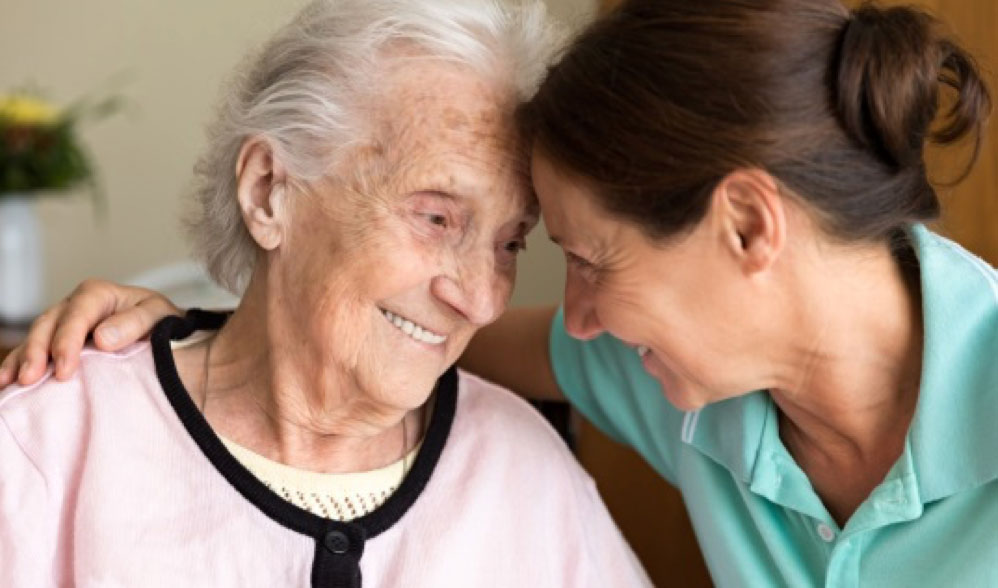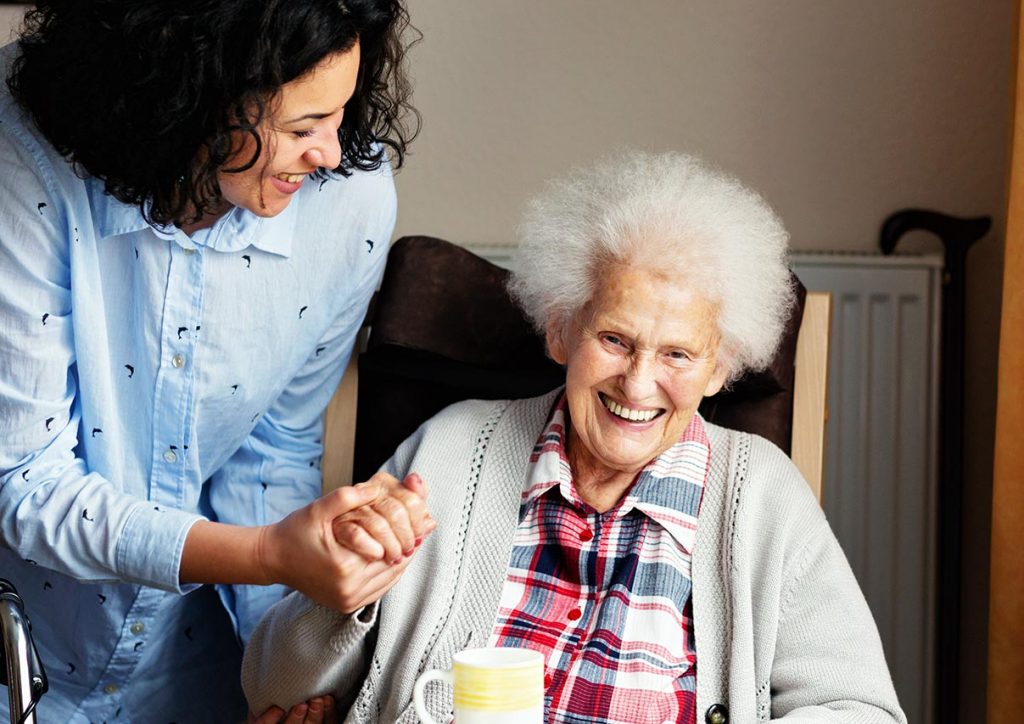Solutions at Home®
HOME HEALTH AIDES
Our home health aides offer New York City’s older adults personalized care and professional support from the comfort of their own home.
What is a home health aide?
A home health aide (HHA) is a trained healthcare professional, licensed by the New York State Department of Health, to provide compassionate, hands-on assistance with daily living activities for older adults and those recovering from illness, injury, or surgery. HHAs help individuals maintain their independence while receiving care in the comfort and familiarity of their own home.
Responsibilities of a Home Health Aide
At The New Jewish Home, our home health aides are more than caregivers; they’re trusted companions empowering aging adults across New York City’s five boroughs.
Their responsibilities may include:
- Assisting with bathing, dressing, and grooming
- Helping with mobility and transfers
- Arranging doctor’s visits and other appointments
- Monitoring vital signs and reporting changes in condition
- Preparing meals and supporting nutrition plans
- Light housekeeping and organizing
- Providing medication reminders
- Offering companionship and emotional support
Registered nurses supervise all aides who follow personalized care plans tailored to each client’s unique needs.
Services Provided by Home Health Aides
Our home health aides (HHAs) work as part of an interdisciplinary team that may include nurses, therapists, and social workers, ensuring comprehensive care at home. Services can be tailored to support short-term recovery or ongoing needs, including:
- Post-hospital or post-surgical care
- Chronic disease management
- Memory care support for individuals with Alzheimer’s or dementia
- Assistance with mobility, including fall prevention
- Support with daily routines and rehabilitation exercises
If you need a few hours of help each day or even more frequent support, our HHAs are ready to provide compassionate, dependable, and safe care.
Why Families Trust The New Jewish Home for Home Health Care
With more than 170 years of experience caring for New Yorkers, The New Jewish Home understands what it takes to deliver exceptional home-based care. Our home health aides are certified, thoroughly screened, and trained to provide culturally sensitive and age-appropriate care. Our Solutions At Home® program is a licensed home care agency, with every care plan created and overseen by clinical professionals. Our New York City-based team offers consistent communication, family support, and flexible scheduling, making it easier to get your loved one the help they need without disrupting daily life.
In addition to clinical expertise, our care is infused with the thoughtful touches of our signature hospitality program, offering support that helps clients feel comfortable, heard, and valued throughout their care journey.
Home Health Tips for Managing Specific Medical Conditions
Our HHAs are trained to recognize the everyday needs of individuals with a wide range of medical conditions. Here are a few ways they help manage care at home:
- Diabetes: Monitoring blood sugar levels, supporting healthy meal planning, and recognizing early signs of hypoglycemia or hyperglycemia.
- Heart disease: Encouraging low-sodium diets, helping with medication adherence, and assisting with safe physical activity as prescribed.
- Dementia and Alzheimer’s: Offering gentle reminders, supportive routines, minimizing confusion, and creating calm, structured environments.
- Arthritis and mobility challenges: Assisting with movement, managing pain through comfort measures, and ensuring fall prevention.
The goal is always to support physical health, emotional well-being, and the ability to live as independently as possible.
Interested in Home Health Aide services?
Please do not submit job/work inquiries through this form. If you are interested in contacting Solutions at Home® for employment opportunities, please check our job listings page.
Call 646-293-3340
To talk to a home care specialist.






